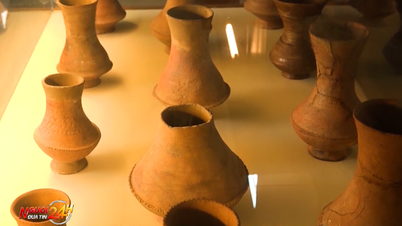In Shanghai (China), there was a noisy post-divorce property dispute between Ms. Truong and Mr. Tran that attracted a lot of attention. After more than 10 years of living together, the wife discovered that her husband had won the lottery many times. If you were in this situation, what would you do?
Accordingly, before getting married, Ms. Truong had a daughter, and Mr. Tran had a son. They both remarried in 2003. After 11 years of living together, they did not have any more children. After getting married, Mr. Tran took full control of the family's finances. According to Ms. Truong, her ex-husband was always wary of his wife and never told her about his income and expenses.
Ms. Truong knew that her husband liked to buy lottery tickets on weekdays, but she did not pay much attention to his special hobby on weekdays. She also said that to hide it from his wife, Mr. Tran still went to work every day and never told his wife about the huge bonus.
After 11 years of marriage, Ms. Truong could no longer bear her husband's cold violence and filed for divorce, but the court refused. Ms. Truong then separated from her ex-husband for a long time. More than a year later, Ms. Truong filed for divorce again.

Illustration
While handling divorce proceedings, Ms. Truong accidentally discovered that Mr. Tran had won the jackpot many times, with a total after-tax value of 7.9 million yuan (27.5 billion VND).
After winning the lottery for the first time, Mr. Tran went to the bank to withdraw this large sum of money 3 times in 2 days. In total, Mr. Tran withdrew 4.23 million yuan in cash (14.7 billion VND).
In court, Ms. Truong argued that the lottery winnings were the common property of the couple and should be divided between them. In addition, Mr. Tran transferred or hid the cash, so when dividing the remaining lottery winnings, Mr. Tran should receive less or even no more money. Mr. Tran explained that he had won a lot of lottery winnings but all of it was used for family expenses, including buying more lottery tickets, paying living expenses, financial investments, etc.
The court found that the prize money was not all used for household expenses as Mr. Tran had declared. At the same time, the court found that Mr. Tran had transferred and concealed the couple's joint assets, so Ms. Truong was awarded points in the final judgment. They also confirmed that Mr. Tran had 2.5 million yuan from the lottery winnings that had not been used. Finally, the court ruled that Mr. Tran must give his ex-wife 1.4 million yuan (4.8 billion VND).

Illustration
According to Article 1092 of the Civil Code of China, during the cohabitation, if the husband or wife conceals, transfers, sells, destroys, wastes the marital property, or falsifies joint debts with the purpose of appropriating the property, the marital property will be divided after the divorce. Regarding the property, the party causing the damage may be divided a smaller portion, or not divided at all.
After the divorce, if one party discovers the behavior of the husband or wife, they can file a lawsuit with the People's Court to request the division of common property. If during the cohabitation, if the husband or wife wins the lottery, the prize money will be considered common property and must be divided between both. If the husband or wife discovers that the other party has hidden assets, they need to promptly find evidence and file a lawsuit with the People's Court to clarify the total assets, then request the division.
Source: https://giadinh.suckhoedoisong.vn/vua-ly-hon-thi-phat-hien-chong-trung-so-27-ty-tu-11-nam-truoc-vo-lap-tuc-quay-lai-doi-tien-phan-quyet-cua-toa-gay-bat-ngo-172240927101656656.htm





















![[Infographic] Vietnam-Senegal traditional friendship](https://vphoto.vietnam.vn/thumb/1200x675/vietnam/resource/IMAGE/2025/7/23/4c96a604979345adb452af1d439d457b)
















































































Comment (0)